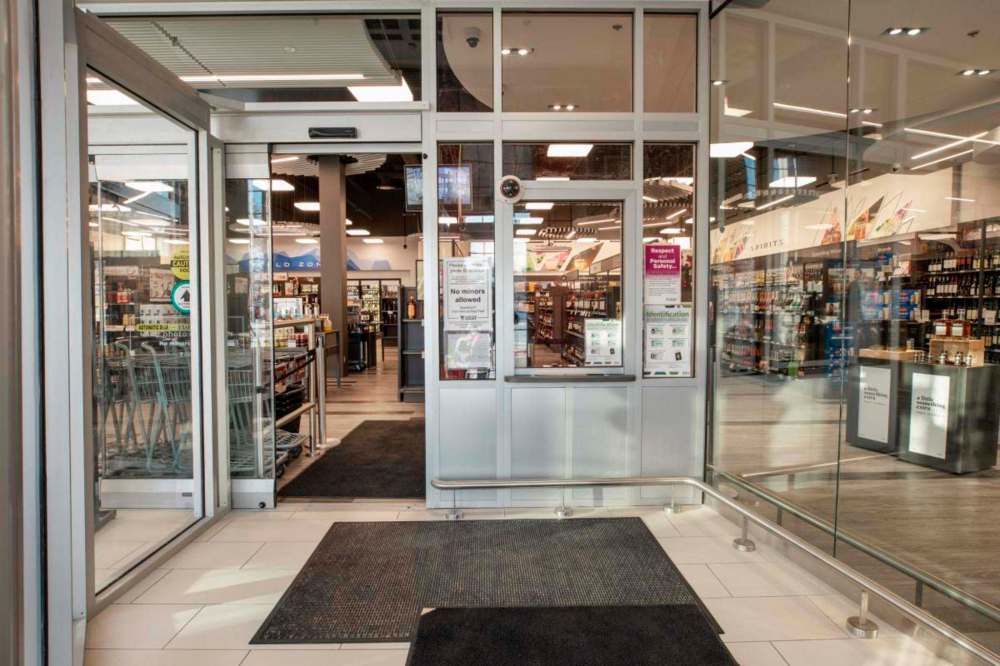Retail theft, addiction and finding solutions
Advertisement
Read this article for free:
or
Already have an account? Log in here »
We need your support!
Local journalism needs your support!
As we navigate through unprecedented times, our journalists are working harder than ever to bring you the latest local updates to keep you safe and informed.
Now, more than ever, we need your support.
Starting at $15.99 plus taxes every four weeks you can access your Brandon Sun online and full access to all content as it appears on our website.
Subscribe Nowor call circulation directly at (204) 727-0527.
Your pledge helps to ensure we provide the news that matters most to your community!
To continue reading, please subscribe:
Add Brandon Sun access to your Winnipeg Free Press subscription for only
$1 for the first 4 weeks*
*$1 will be added to your next bill. After your 4 weeks access is complete your rate will increase by $4.99 a X percent off the regular rate.
Read unlimited articles for free today:
or
Already have an account? Log in here »
Hey there, time traveller!
This article was published 10/10/2024 (354 days ago), so information in it may no longer be current.
“We’re never going to arrest our way out of those sorts of situations. Looking upstream … how we can help people and giving them off-ramps to support, has got to be part of models going forward.”
— Former Brandon Police Service chief Wayne Balcaen
It has been said before, in reference to one or another of the societal scourges gripping Manitoba communities, and it will doubtless be said again: We cannot police our way out of this.

The most recent invocation of this simple but sensible observation came last week at the Retail Secure Manitoba Summit, an event hosted by the Retail Council of Canada. The conference brought together business leaders, elected officials, retailers, law enforcement and community members to explore collaboration and strategic action to combat the growing trend of retail crime/theft and the violence that sometimes accompanies it.
“Our society is disintegrating under the weight of an addiction and mental-health crisis,” former Manitoba chief judge Ray Wyant told the gathering of approximately 400 attendees. “The availability and use of illicit drugs, especially drugs like methamphetamine and fentanyl, is literally destroying lives every day.”
That Wyant’s unequivocal observation should make no specific reference to crime or the retail sector is instructive, as the long-term solutions — if, indeed, any are truly to be had in the context of the downward-spiralling socioeconomic conditions that underpin the issues in focus at the Oct. 4 summit — are rooted in the identification, cogent comprehension and multi-layered societal confrontation of the root causes of retail crime and its spinoff effects.
And in laying out the contributing factors that motivate the escalating wave of theft from retail establishments — whether to satisfy the basic but, for many, unaffordable needs of food and clothing, or for more mercenary reasons involving the quick resale of stolen goods to support drug addiction or in the pure criminal pursuit of profit — Wyant circled back once again to that familiar refrain: “We can’t police our way out of this crisis.”
That’s a truism whether you live in Winnipeg or here in Brandon, where the sheer number of issues may be somewhat smaller than Manitoba’s capital, but remain just as difficult to resolve. Our own former police chief, quoted above, has told us the same.
And while Brandon’s downtown faces very similar issues — of addiction, homelessness and poverty — the situation in Winnipeg has become dire, with some business owners forced to close because they can’t handle the high level of shoplifting and other crime they are having to contend with.
At this stage of the situation, it should be safe to assume a majority (though perhaps not overwhelming) of the population understands this. And that means seeking solutions to the double-headed problem of retail crime and violent crime will necessarily be a long-term pursuit involving all levels of government, police, justice, advocacy groups and support agencies, the retail sector and the community at large.
Premier Wab Kinew, who attended the summit, said the province is committed to increased support for child welfare, addictions treatment and housing initiatives — such as Tuesday’s announcement of the establishment of an affordable housing real estate investment trust.
But here’s the sticking point: while such horizon-inclined efforts are logical and admirable, they do not address the ongoing calls from retailers and shoppers alike for immediate action to address the crime and safety concerns evident in commercial settings right now, every day.
Winnipeg Mayor Scott Gillingham, who was also in attendance at the summit, underscored the importance of ground-level endeavours, including the Downtown Community Safety Partnership, community initiatives such as the Bear Clan and SABE Peace Walkers, and the just-extended retail theft and violent-crime prevention program in helping to directly confront the issues at hand.
The message, then, seems to be that while we can’t police our way out of this crisis, there remains some need to police our way through it while the longer-term solutions are being pursued.
And the challenge facing all the stakeholders in attendance at this commendable meeting of minds is translating the current specifically targeted and modestly budgeted programs that have shown positive results into a broader approach that might prove effective in interrupting the current criminal trend.
It will be difficult, and it will be costly. A daunting commitment of political and commercial will is required if any realistic progress is to be made.
As Wyant summed it up: “Good intentions and superficial slogans are not going to solve it.”
And as Brandonites, it would be prudent to pay attention to what happens in Winnipeg.
» Winnipeg Free Press and The Brandon Sun
